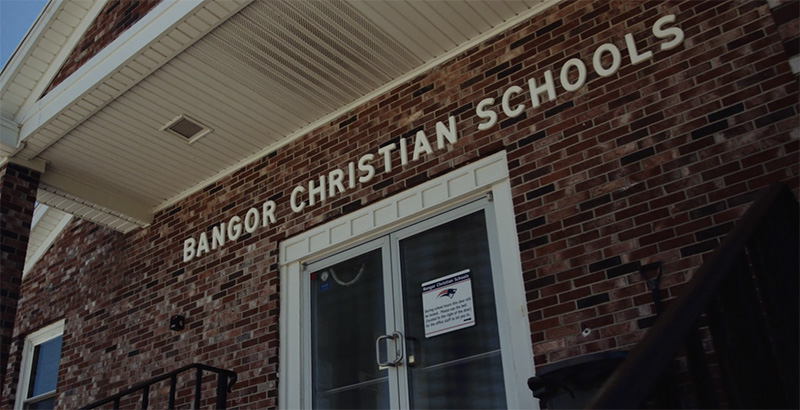Garnett: Empowering Parents With More and Better Schools — Guidelines for Expanding Private School Choice Programs, and Making Them Accountable

Get stories like this delivered straight to your inbox. Sign up for The 74 Newsletter
This has been a blockbuster year for private school choice. Twenty-one states have voted to create, expand or improve school choice programs, including three — Kentucky, Missouri and West Virginia — that previously had none. Eligibility for the new education savings account program in West Virginia and the expanded voucher program in Indiana encompasses nearly 80 percent of those states’ school-aged children. And, in December, the Supreme Court will finally resolve whether the First Amendment prohibits the government from excluding religious schools from private school choice programs. If the plaintiffs prevail, the decision in Carson v. Makin will render toothless many state Blaine Amendments, clearing the way for an even more dramatic expansion of choice throughout the nation.
Clearly, private school choice, long the third rail in education policy debates, has moved from the margins to the mainstream. In the three decades since Wisconsin enacted the nation’s first school voucher program in 1990, parent choice has exploded onto the educational scene. With the addition of three states to the roster this year, 31 states, the District of Columbia, and Puerto Rico now have at least one private school choice program, and more likely will join the ranks in the near term. These parental choice programs provide much-needed educational opportunities for disadvantaged children, opening the doors to private and faith-based schools that have long served disadvantaged and minority students well. But, as private school choice expands, the question inevitably follows: How should regulators hold private schools participating in publicly funded choice programs accountable?
On one level, it is reasonable to condition private schools’ participation in parental-choice programs on some level of government oversight. But for what should private schools be held accountable? How should regulators determine whether their performance meets various standards? What ought to be the consequences of nonperformance? To what extent are many demands for accountability made disingenuously by opponents seeking to undermine choice programs? Do (or might) accountability rules threaten schools’ autonomy and religious liberty? Would they deter some schools from participating at all?
In a new issue brief for the Manhattan Institute, I tackle these complexities and recommend guidelines for accountability in private school choice programs. These recommendations reflect two important goals: first, to empower parents to make good choices for their children. Regulations promoting this goal must ensure that information about school quality is readily available, transparent, easy to interpret and reflective of the school-quality criteria that matter most to families. This information also will enable parents to serve an accountability function by making informed decisions in school-choice markets. The second goal is to ensure that parental choice provides access to more and better schools. In most cases, this goal is better advanced by persuading good schools to participate in choice programs than by excluding bad ones from doing so. The long history of academic accountability efforts in the public sector demonstrates that punitive government regulations rarely drive school improvement. Additionally, regulations that unduly constrain the autonomy of schools can incite religious-liberty concerns that may deter academically strong schools from participating in choice programs.
What might accountability regulations reflecting these principles look like in practice? Regulators ought, first and foremost, to encourage private schools participating in choice programs to transparently report information about student performance. Private schools have historically not been required to participate fully in the accountability regimes designed for district and charter schools, or to administer state-mandated tests. That should continue. That is, regulators should allow private schools participating in choice programs the flexibility to administer the research-based standardized exam of their choice. If regulators wish to encourage apples-to-apples comparisons among private, charter and district schools, they might consider providing financial incentives — for example, by offering larger scholarships or expanding income eligibility guidelines for private schools that agree to use the same exams as public schools.
Next, policymakers should encourage private schools to develop and report measures of school quality other than standardized test scores, as federal law already requires for district and charter schools. This is important for two reasons. First, parents frequently prioritize factors other than test scores in selecting schools for their children; second, research on private school choice suggests that the biggest benefits of participation are not captured in test scores, but rather unfold over lifetimes (e.g., higher rates of high school graduation, college enrollment and persistence and employment). Possible indications of school quality in choice programs include attendance and expulsion rates, student and staff retention, parent satisfaction and high school graduation and college enrollment data. One compromise position advancing the goals described above would be to allow participating schools to administer the standardized test of their choice, but mandate that they report the results publicly, along with one or more non-test-based measure of school quality.
Finally, regulators ought to exercise caution before penalizing schools for persistent underperformance — for example, by limiting the participation of failing schools, as is the case in Indiana and Louisiana. Research on public and charter school policies suggests that closing failing schools improves academic performance only if displaced students can enroll in a better school. Similarly, regulators should not exclude private schools from participating in choice programs until they are sure affected students will not be worse off.
This is an opportune time to consider, with care, the question of accountability and private school choice. As the footprint of private school choice expands, it has never been more important to get the accountability calculus right.
Nicole Stelle Garnett is the John P. Murphy professor of law at the University of Notre Dame and an adjunct fellow at the Manhattan Institute, where she wrote the recent issue brief “Accountability and Private School Choice.”
Get stories like these delivered straight to your inbox. Sign up for The 74 Newsletter

;)
